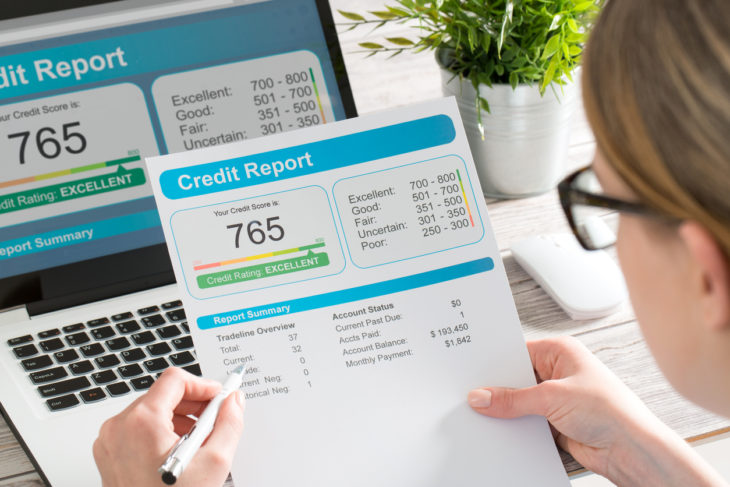When you really think about it, you realize that we rate and/or score nearly all things in life so as to compare them with their contemporaries and confidently grant our patronage. Zagat gives restaurants ratings so that you can find the best tikka masala out of 20 Indian joints; eBay sellers have feedback ratings so you know which person will screw you the least when spending hundreds on sold-out Springsteen tickets; and in school, you get grades and take the SATs in order for some school to grant you admission so you can spend four years there doing keg stands and having lots of random sex.
Your credit score’s no different. The ins and outs of your financial activity are monitored and given a three-digit “score” so that all sorts of financial and other institutions have a way to determine your financial reliability and ability to get everything from a home loan to an iPhone.
If you’re a little unclear as to what a credit score is and how it actually impacts your life, don’t stress. After the jump, Frisky Money contributor Manisha Thakor, personal finance expert for women and author of On My Own Two Feet: A Modern Girl’s Guide to Personal Finance, answers your top credit score-related questions …

Source: AdobeStock
Contents
- What exactly is a credit rating, in plain English, please?
- How are credit ratings determined, exactly?
- Um, who has access to my credit rating? Do I have to grant the access? Like, isn’t this private info?
- What kinds of institutions use credit ratings to make decisions about what they will grant me? What kinds of decisions are made based on my credit ratings?
- How can I improve my credit rating (or wreck it)?
What exactly is a credit rating, in plain English, please?
Your credit score (which is what people are really talking about when they use the financial slang “credit rating”) is a three-digit number that summarizes how financially responsible you have been, Thakor explains. Scores typically range from 300 – 850. However, unlike your weight, higher is better.
How are credit ratings determined, exactly?
Credit scores are based on a variety of factors, says Thakor. Driving 80 percent of your credit score are three factors: how good you’ve been at paying your bills—everything from your mortgage to your cell phone bill—on time, what your “debt utilization ratio” (that’s fancy-pants speak for the ratio of the total debt you have outstanding relative to your total credit limits) is and the length of your credit history.
Um, who has access to my credit rating? Do I have to grant the access? Like, isn’t this private info?
Thakor explains that any time you apply for a loan, the lender will check your credit rating. “Increasingly, insurance companies and landlords will check your credit rating to see if you are worthy of getting their product or apartment,” she adds. “They will notify you in advance, so, yes, you will know it’s happening, but if you say ‘no’, it could look a little questionable, and it’s therefore unlikely you’ll get the loan, service, etc.” In these kinds of situations, make sure you pay attention to contracts, Thakor cautions. “Permission to access your credit score is frequently requested in the fine print, so you may not be realizing you are granting it,” she advises.

Source: iStock
What kinds of institutions use credit ratings to make decisions about what they will grant me? What kinds of decisions are made based on my credit ratings?
Credit ratings are used by a lot of different folks. “The classic use was to determine what interest rate you’d be charged for a home or car loan, but in recent years, that’s really expanded,” Thakor says. “Now, insurance companies routinely look at your credit score in pricing your premiums, using the thought process that if you’re not responsible with your money you may not be responsible with your car or home.” Cell phone companies can also check your credit score to decide if they’ll activate a new line for you. And some employers even check as part of their background checks on prospective employees.
How can I improve my credit rating (or wreck it)?
Thakor says that the three simplest ways to improve your credit rating are to always pay your bills on time (she recommends using auto bill pay to do so), pay down any revolving credit card debt and keep your oldest credit card open—the longer your credit history, the more it helps your credit score.
Things that can really hurt your credit score (that are not simply the opposites of the above), she says, include opening up a lot of credit cards in a short period of time (so be careful of those 10-percent-off offers for retail store cards!), just having too many cards in general and the big one: letting any of your debt obligations go into collections and/or declaring bankruptcy.
Original by Chelsea Kaplan
